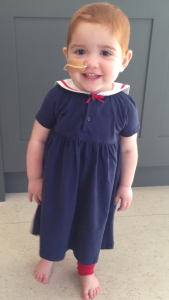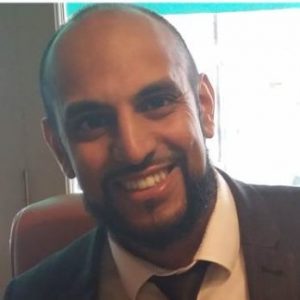
Margot, June 2014 at home. The cord blood registers were also included in the search process for Margot’s ‘perfect match’, unfortunately without success
When we talk about “giving to help others”, we do so in the context of giving stem cells & bone marrow, blood & platelets and also organs. However, there is another type of giving that we haven’t really mentioned previously, other than fleetingly in the occasional blog post. And that’s cord blood.
Cord blood collection, storage & usage as a treatment has been around for many years already and whilst cord blood has numerous benefits (notably, it’s more versatile than bone marrow or peripheral stem cells because of the immaturity of the cells), it comes with significant challenges.
One of the fundamental challenges is the limited number of hospitals where cord blood can be collected and donated. We list below the 16 hospitals (listed alphabetically) where cord blood currently can be collected via the NHS Blood and Transplant (NHSBT), Anthony Nolan (AN) and Precious Cells (PC), as indicated in brackets below.
Earlier this year, Margot’s auntie Nadia and I had the pleasure of meeting Dr Husein Salem of Precious Cells Group who is heavily involved in the cord blood field, working in partnership with the NHS. Dr Salem kindly agreed to write the blog post below, by way of introduction to cord blood and we hope that this is just the first of many such blog posts.
As Precious Cells state on their website: “The future belongs to those who prepare today.”
Team Margot
Together, saving lives
===
Stem cell therapies are saving and changing lives today. And as technology and research continues to advance at pace, tomorrow they will save even more.
When people think of stem cells transplants, they often automatically think of bone marrow. This is completely understandable, as quite often when we see stories or news articles, they are specifically about bone marrow transplants. Not everyone is aware of umbilical cord blood and the huge healing potential it has. It’s something that myself and the team I work with are very passionate about.
Basically, cord blood comes from the leftover blood in the placenta, and we know that this is the richest source for pure, young stem cells which are routinely used to treat life threatening and debilitating illnesses. It’s collected after the baby and placenta have been born and does not interfere with obstetric or midwifery care at all, with absolutely no risk to either mother or baby.
Despite its fantastic lifesaving potential, frustratingly, millions of litres of cord blood are discarded in the UK every day as medical waste. There are several reasons for this, but the biggest challenges we face are:
I really can’t stress enough the significant impact that wasting this resource has had on the development of stem cell therapies in the UK and consequently the number of lives that can be saved. I fundamentally believe that every person across the globe should have access to stem cell therapy should they need it, and that’s why we’re doing everything we possibly can to overcome these challenges.
In 2014 we set up our charity Precious Cells Miracle and we partner with NHS Trust hospitals around the UK to facilitate the collection of cord blood stem cells from mothers who choose to donate their baby’s cord blood, at zero cost to the NHS.
We’re establishing an ethnically diverse public cord blood registry to meet the ever increasing demand for stem cells. So, once donated samples are received, they will be analysed for clinical quality and when they meet this criteria they are placed on an international registry and can be accessed by anyone who is a match to that sample worldwide. It’s important to note that not every sample will meet the clinical criteria, so that’s why we need more and more people opting in to donate.
Patients from black and minority ethnic groups who need a stem cell transplant have an especially hard time finding a donor. For example, the ideal match for someone with a blood cancer like leukaemia is a sibling where there is a 1 in 4 chance of a match. If there isn’t a matched sibling donor then the next step is to look at donor registers. Some ethnic groups have more complex tissue types than others and the low number of black and minority ethnic donors on registers around the world historically has made finding a suitable life-saving match difficult.
We need to increase the numbers on, and ethnic diversity of, registers. This is why at Precious Cells, we focus our resources in ethnically diverse areas. We want to extend our services to even more areas and help more people, so we are constantly campaigning to raise awareness of stem cells and their fantastic potential. By encouraging everyone to join us on our vision to connect 7 billion potential stem cell donors (or as we like to call them potential lifesavers) worldwide, we will be able to make stem cell therapies accessible to more and more people.
Something BIG is happening, it’s time to get involved. Join us and #BePartOfIt
https://www.precious-cells.com/why-be-part-of-it
===
About

Dr Husein K. Salem
Dr Husein K. Salem is chief executive and founder of Precious Cells Group and founding trustee of Precious Cells Miracle: Community Cord Blood Registry, in partnership with a growing network of National Health Service Trusts across the UK.
Precious Cells Group was founded because of the enormous potential stem cells and the field of regenerative medicine and personalised therapeutics holds to revolutionise the way we treat and heal ourselves in our lifetimes and for our children’s generation.
Precious Cells Miracle: Community Cord Blood Registry is a not-for-profit Registered Charity working in collaboration with Precious Cells Group. The Miracle offers families the opportunity to take part in this public altruistic scheme that aims to collect cord blood stem cells for allogenic use.
For families with a history of cancer or many other diseases, the availability of stem cells can be a life saving resource. The use of stem cells is now standard medical practice in many countries for a range of blood cancers and immune disorders.
Husband to Vicki and father to Oscar (2007), Rufus (2008), Digby (2015), Humphrey (2017) & Margot (2012-2014)
Team Margot’s mission
To help save and improve lives by educating, inspiring and motivating people, especially from ethnically diverse communities, to register as blood, organ, stem cell and bone marrow donors and to provide a range of support to families caring for child cancer patients.
Team Margot also provides secretariat support to the All-Party Parliamentary Group for Ethnicity Transplantation and Transfusion.